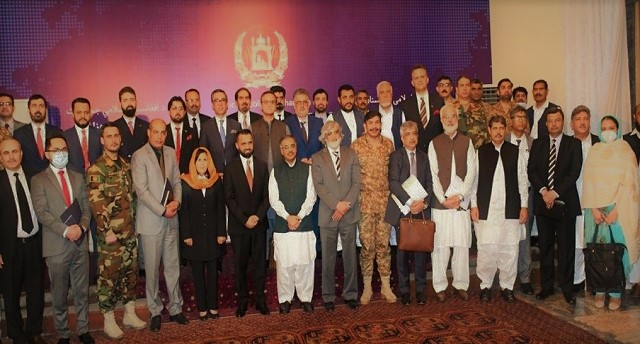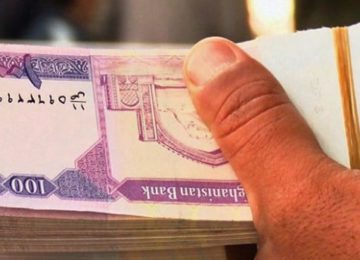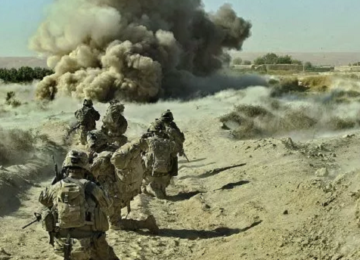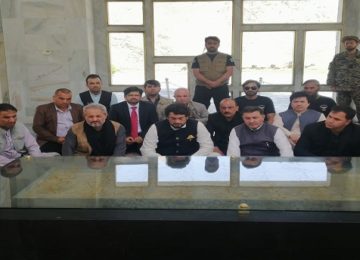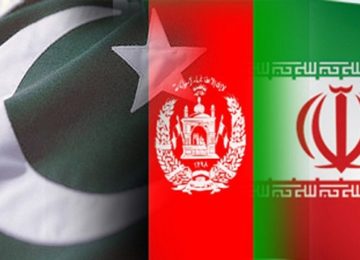September 01, 2020

In another positive move between Pakistan and Afghanistan, the second round of the Afghanistan – Pakistan Action Plan for Peace and Solidarity (APAPPS) review meetings, was held yesterday in Kabul. The APPAPS meeting, is a platform to discuss and find solutions to the common challenges of security and peace, economic reforms, refugee issues and build trust between the two countries.
Frequent high-level meetings between the two sides signal increase in the comfort level between Islamabad and Kabul. All this augurs well for the bilateral relations, particularly in the wake of commencement of intra-Afghan dialogue and a strong hope for peaceful Afghanistan in near future. However, overall nature of the relations is still fragile and can roll-back in case of any unwanted or unexpected incident. This is why institutional engagement like APPAPS is necessary.
Foreign Secretary Sohail Mahmood headed the 40-member Pakistani delegation of the Pakistan delegation. The Afghan side was led by Deputy Foreign Minister Mirwais Nab. Both sides reiterated their commitment to optimally utilize (APAPPS) to deliberate on all key issues, effectually address shared challenges, and explore novel avenues of cooperation.
Pakistan’s Foreign Secretary reiterated Islamabad’s abiding commitment to a peaceful, stable, united, sovereign and prosperous Afghanistan. He also reaffirmed Pakistan’s steadfast support for the Afghan peace process and reaffirmed that there was no military solution to the conflict in Afghanistan. “An inclusive, broad-based and comprehensive political settlement is the only way forward. Pakistan looks forward to the earliest commencement of Intra-Afghan Negotiations. The Afghan stakeholders must seize this historic opportunity, work together constructively, and secure an Afghan-owned and Afghan-led negotiated solution for durable peace and stability in Afghanistan and the region,” he urged Kabul.
Anticipating a bumpy road ahead, the foreign secretary cautioned against the role of ‘spoilers’ and emphasized that determination and unwavering commitment would be crucial for a positive outcome. There were five working groups – under APPAPS – and each engaged in the domains of war against terrorism, expansion of bilateral economic cooperation, security cooperation, refugees, political cooperation and cooperation in the peace process in Afghanistan.
These Working Groups held in-depth deliberations on vital tracks of the relationship. In the Politico-Diplomatic Working Group, Islamabad focused on consolidating bilateral relations through regular high-level exchanges, more institutional engagement and increase people-to-people exchanges. On the other hand, in the Economic Working Group, Pakistan reiterated its pledge to expand bilateral trade through facilitation and liberalization measures and boosting economic partnership. It also articulated its willingness to start negotiations on a new Afghanistan-Pakistan Transit Trade Agreement (APTTA), utilization of existing mechanisms including APTECA and JEC. Most of the discussions in this group were regarding issues being currently faced in both transit and bilateral such as scanning, tracking-devices, delays in clearance, demurrages and detention charges etc. Furthermore, at the policy level, reopening of Ghulam Khan border for transit trade also came under discussion.
Moreover, the Refugee Working Group conversed all facets relating to the Afghan refugees in Pakistan. The Pakistan side was of the view that the peace and reconciliation process offered a window of opportunity to address the return of Afghan refugees to their homeland with dignity and honour. A time-bound, well-resourced roadmap was important in this regard. Under the Military-to-Military and Intelligence Cooperation Working Groups, thorough discussions were held on all pertinent matters, with stress on regular exchanges and closer collaboration.
Prior to the review meeting, the foreign secretary and the delegation members called on Acting Foreign Minister Hanif Atmar to discuss the issues of mutual interest. During the meeting, ways and means were discussed to enhance Pakistan-Afghanistan bilateral cooperation and strengthen endeavours in support of the Afghan peace process.
The first review meeting of the APPAPS was held in Islamabad, Pakistan on 10th June 2019. APAPPS has been one of the most comprehensive platforms in bilateral relations between the two country. It was established in 2018 to provide a comprehensive and structured framework for institutional engagement in diverse areas of bilateral cooperation between Islamabad and Kabul.
The report is written by Saddam Hussein, Program Officer at Afghan Studies Center.
© Center for Research and Security Studies (CRSS) and Afghan Studies Center (ASC), Islamabad.



